Latest Archive
Free Newsletter
Matthew Yglesias flags what he calls “the shifting sands inside the German political elite” regarding the need to strengthen the European Union’s political-economic governance mechanisms, but then concludes: Leaving aside the policy ideas here, what you’re seeing is a European policy debate. It’s not Germany versus some other country. And it’s not a simplistic “Europhiles versus Europhobes” debate either. It’s a real disagreement about the best way for Europe to proceed, like how Democrats and Republicans argue in Ohio about national policy. Unfortunately, I think that’s putting too optimistic a spin on things. The truth is, this kind of European […]
There are two ways of reading the publicly released summary of the Obama administration’s Afghanistan Strategic Review. The first, admittedly my initial reaction, is as a politically driven document designed to gloss over the reality of the war in order to reconcile the administration’s promise to begin a drawdown in July 2011 with the need for a continued military commitment to sustain any gains that have been made in the past year. The second, admittedly my subsequent reaction, is as a reality-driven document that reflects the mixed and sometimes contradictory outcomes since the administration’s last policy review, and that correctly […]
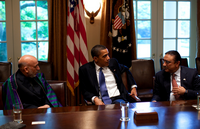
The publicly released overview document summarizing President Barack Obama’s review of U.S. strategy toward Afghanistan and Pakistan touts a number of successes over the last year but concludes that “the challenge remains to make our gains durable and sustainable.” In language very similar to the assessments made for Iraq after the “surge” had begun there in 2007, the report points to positive trends but warns that “these gains remain fragile and reversible.” Over the last few weeks, administration officials had already signaled that there will be no change to U.S. strategy in the immediate future. And while Obama remains committed […]
It has been said that the transition of power is the weakest part of democracy. If developments surrounding Egypt’s recent parliamentary elections are any indication, the same might also be true — at least in some paradoxical sense — for authoritarian governments. Outside analysts generally agree that the country’s Nov. 28 elections were wracked by widespread fraud and poll-rigging, resulting in a nearly across-the-board victory for President Hosni Mubarak’s ruling National Democratic Party (NDP). However, as the nation’s crippled opposition now bands together to form a “shadow parliament,” the extent to which the ruling party will be able to use […]
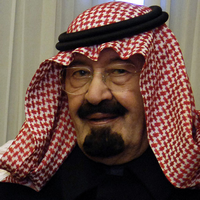
In late-November, a 40-car motorcade drove through New York City toward Presbyterian Hospital, bringing Saudi King Abdullah along with dozens of his accompanying princes and dignitaries to an important medical appointment. The 86-year-old king, whose entourage reportedly took over the hospital’s entire VIP floor and much of the Waldorf-Astoria Hotel, had come to New York for surgery on a slipped disk and a blood clot pressing on nerves in his back, according to palace officials. The medical treatment would keep the king away from his duties for many weeks, and, as with any patient of that age, there was a […]
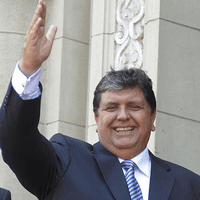
Peru is again on pace to end the year as one of the world’s fastest-growing economies, due in no small measure to its ambitious strategy of economic diversification. In 2010, it finalized four new free-trade agreements (FTAs) — three with Asian partners — and launched the test phase of a joint stock exchange, Mercados Integrados Latinoamericanos (Integrated Latin American Markets, or MILA), with Colombia and Chile. Peru’s global and regional trade diplomacy has resulted in more domestic investment and a larger network of export markets for Peruvian goods. Peru’s open-market policies can also be partially credited with the country’s rapid […]
To follow up on Ukraine’s foreign policy rebalancing under President Victor Yanukovich, it’s worth noting that Yanukovich not only reiterated his desire to seek closer EU ties in his annual address to the country’s diplomatic corps, he actually used stronger language than ever before to describe Ukraine’s ultimate EU ambitions. Previously, Yanukovich had pulled back from seeking full EU membership, but he now not only called full membership a strategic goal, he called the “European prospect” the goal not just of Ukraine’s diplomats, but of “the entire state machine, our economic and social reforms.” That’s strong language for someone who […]
In the aftermath of the French-British defense cooperation treaty, I’d mentioned that EU defense seemed to be the deal’s big loser. So it’s worth noting that France, along with Germany and Poland, called on EU foreign policy chief Catherine Ashton to trigger the Lisbon Treaty’s Permanent Structured Cooperation Clause to allow for more robust military cooperation among a core group of EU member states. At the same time, the three also called for more-structured cooperation between EU defense and the NATO alliance. That further raises the possibility, as I also suggested at the time of the France-U.K. deal, that EU […]
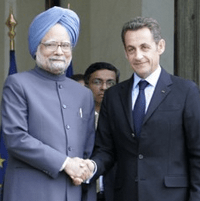
French President Nicolas Sarkozy is the latest head of state to visit India at a time when the latter is looking to award lucrative contracts in energy, infrastructure, security and other areas. As with U.S. President Barack Obama’s visit last month, Sarkozy sought to develop positive atmospherics by making the “right noises” on issues New Delhi holds dear, such as permanent membership on the U.N. Security Council and entry into the Nuclear Suppliers Group as well as terrorism emanating from the Afghanistan-Pakistan region. The visit also saw forward movement on a number of bilateral deals valued at around $20 billion. […]
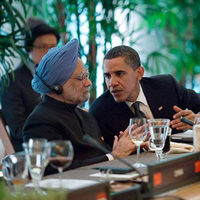
Concern about China’s emerging economic and military capabilities now drives the U.S. strategic debate. The development of anti-ship ballistic missiles (ASBMs) by the PRC has even led some to argue that the balance of power in the Western Pacific has now shifted in China’s direction. At the very least, ASBMs give China another tool with which to threaten U.S. naval predominance in Asia. In response to the perceived growth of Chinese military power, analysts at the Center for New American Security and elsewhere have suggested (.pdf) closer alignment with Japan and India, two of China’s regional rivals. On the surface, […]
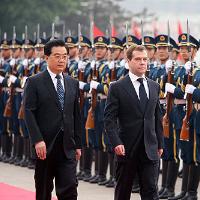
When he joined Russian Prime Minister Vladimir Putin in St. Petersburg on Nov. 23, Chinese Premier Wen Jiabao reassuringly said that, “China will firmly follow the path of peaceful development and support the renaissance of Russia as a great power.” Moscow policymakers, armed with nuclear weapons, probably have little fear of a war with China, but they can rightly be concerned about becoming a raw-material appendage to the growing Chinese economic giant. Since Russia and China have settled their joint border and are not engaged in direct military competition with each other, the focus of the Russian-Chinese relationship in recent […]
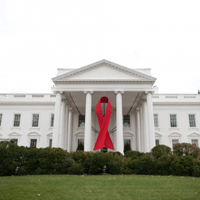
At the closing ceremonies of the International AIDS Conference in Vienna this year, U.S. President Barack Obama pledged to redouble U.S. efforts to fight HIV and AIDS through his Global Health Initiative, notwithstanding hard times in the wake of the global recession. Despite this verbal commitment, many AIDS activists were not satisfied and would later protest, particularly before the midterm U.S. congressional elections, that the U.S. was not spending enough on AIDS overseas. A closer look at the Global Health Initiative budget reveals that these concerns may be justified. While AIDS funding has grown 4 percent from FY2010 to FY2011 […]
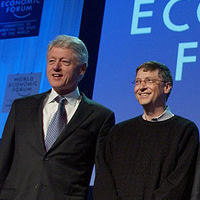
Through their foundations and personal-diplomacy efforts, Bill Gates and Bill Clinton are changing how the international community addresses global health concerns. The Bill & Melinda Gates Foundation is the world’s wealthiest philanthropy, and it has used its wealth to help set the governance agenda for global health. The William J. Clinton Foundation has used the former president’s stature to negotiate agreements between governments and pharmaceutical companies that had previously stymied international trade negotiations for years. The prominence of these two foundations raises a host of issues about the role of private actors in international governance, policy accountability within the international […]

Over the past decade, the amount of money flowing into developing countries to address health issues has grown at an incredible rate. According to one authoritative estimate, the total annual value of money and goods donated to global health from all sources, public and private, has risen from less than $8 billion in 1995 to almost $27 billion in 2010 — with most of that increase occurring since 2002. Game-changing new organizations have been created during this period, from radically different kinds of private philanthropies, such as the Bill & Melinda Gates Foundation, which has made more than $13 billion […]
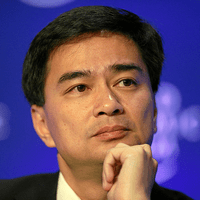
This is the second of a three-part series on Thailand’s slide toward authoritarian rule. The first article discussed the domestic effects of Thailand’s faltering democracy. This second article discusses the regional effects. A third article, to appear next week, will discuss the broader implications for the U.S.-China rivalry in Southeast Asia. The ripple effects of Thailand’s withering democracy are being felt across Southeast Asia, a highly dynamic region that has never fully embraced democracy. On one level, Thailand’s slide towards authoritarianism has deprived the key regional organization, the Association of Southeast Asian Nations (ASEAN), of its most-progressive leader. Until the […]
